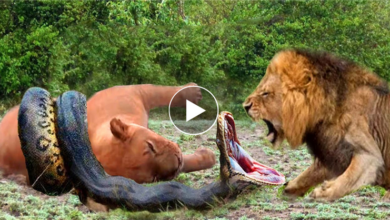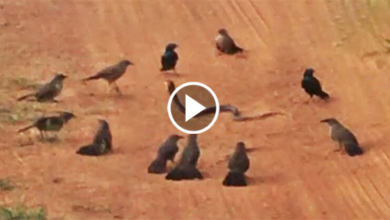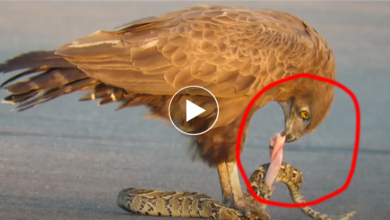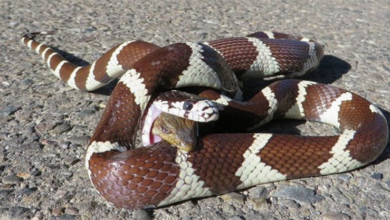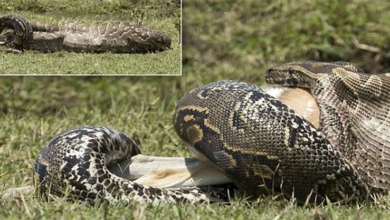Abducted as babies, chained up and trained to pick 1,000 coconuts every day: Revealed, how the billion-pound coconut water industry is built on the abuse of monkeys

Chained-up monkeys in south-east Asia could be picking the coconuts used to make the various trendy brands of water and oil sold in health food stores and supermarkets across the world.
Baby monkeys are stolen away from their mothers, who are often shot by hunters, and sent to special schools where they are taught to pick as many as 1,000 coconuts a day.
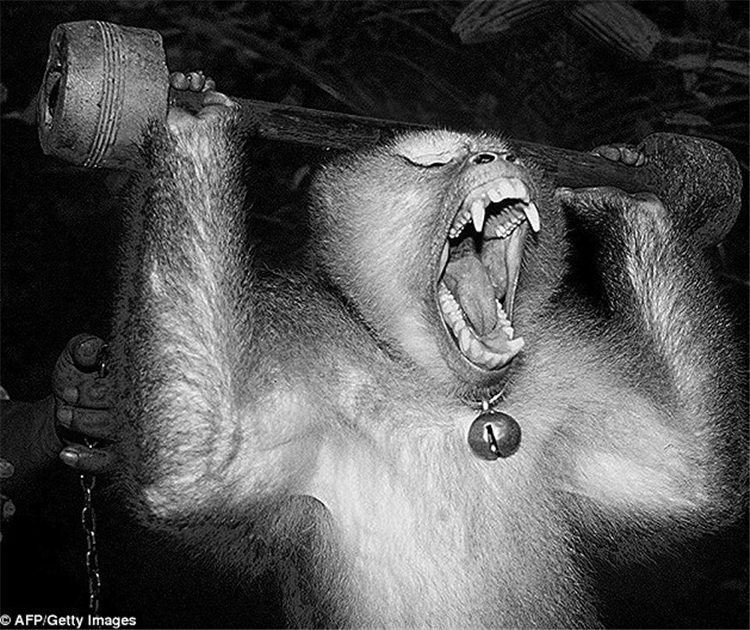
Many of the coconut-based products, which have become the must-have for healthy eaters and celebrities alike, are sourced from Thailand where the majority of coconuts are picked by these cruelly-treated animals, reports claim.
Several major brands that MailOnline investigated source their products from Thailand, as well as the south-east Asian nations of Indonesia and the Philippines.
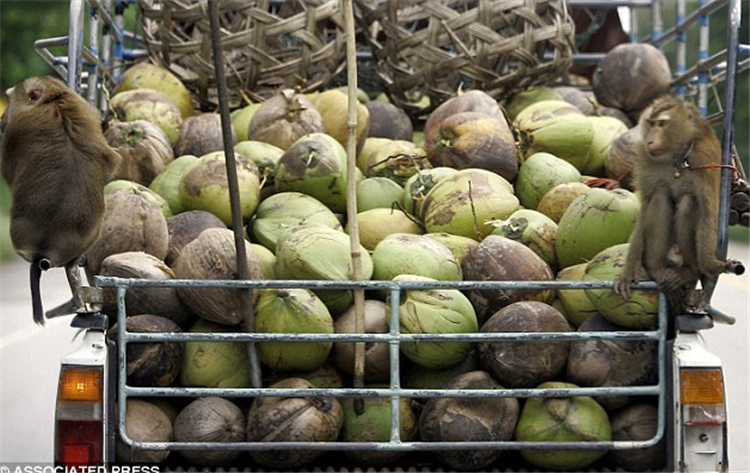
These coconut oils and waters have been espoused by several celebrities who blog about their health benefits and use them as nutritious alternatives in their ‘free-from’ bakes.
And nearly every supermarket or grocery store now features coconut water, making the whole industry worth around a billion pounds.

But as demand grows, so does the abuse of macaque monkeys who suffer ‘serious psychological damage’ as a result of being chained up 24-hours-a-day.
any coconut water companies source their product south-east Asian countries like Indonesia, where 18m tonnes of coconuts are harvested every year, and Thailand, which produces just over one million tonnes annually.
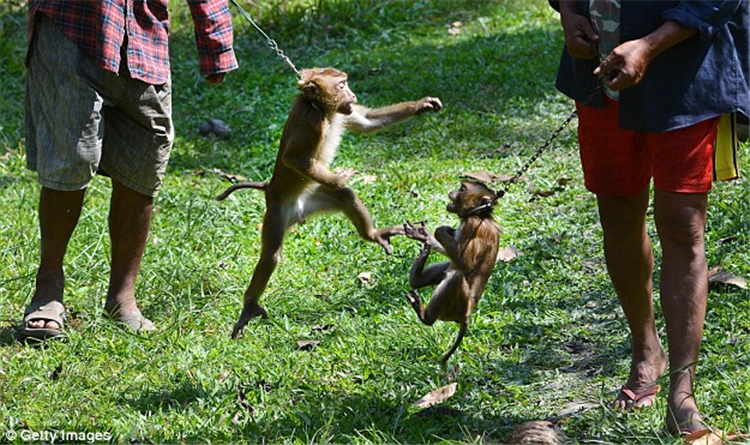
It is unknown how many of the coconuts used to make the products are picked by monkeys.
But the Bangkok Post claims that if the drink sourced from Thailand, the coconuts were ‘most likely’ picked by monkeys.
Some monkeys are known to work from 8am to 5pm and only stop for a short break on rainy days and Sundays.
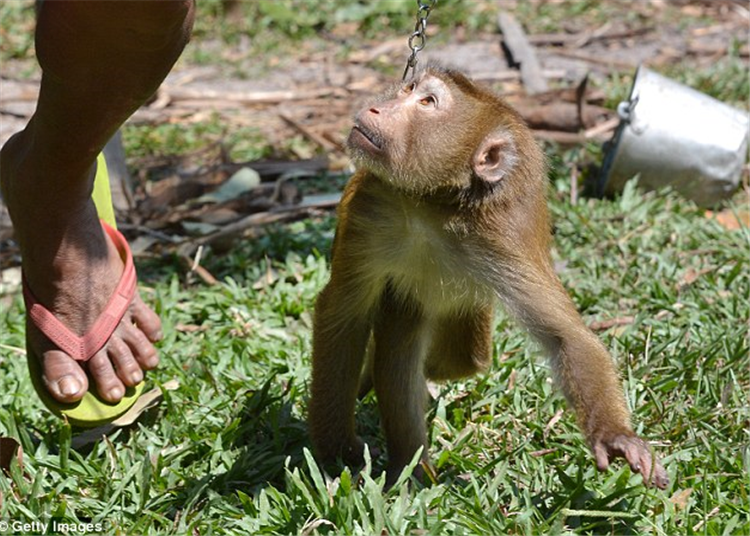
When they are not working, their owners place a muzzle on their faces and shackle them to a tree stump or a shed – restricting their movement and interaction with other monkeys.
A well-trained monkey can pick hundreds more coconuts than a human, who are limited to a few hundred at most, and fetch up to £1,200 when sold to other farmers.

any coconut water companies source their product south-east Asian countries like Indonesia, where 18m tonnes of coconuts are harvested every year, and Thailand, which produces just over one million tonnes annually.
It is unknown how many of the coconuts used to make the products are picked by monkeys.

But the Bangkok Post claims that if the drink sourced from Thailand, the coconuts were ‘most likely’ picked by monkeys.
Some monkeys are known to work from 8am to 5pm and only stop for a short break on rainy days and Sundays.

When they are not working, their owners place a muzzle on their faces and shackle them to a tree stump or a shed – restricting their movement and interaction with other monkeys.
A well-trained monkey can pick hundreds more coconuts than a human, who are limited to a few hundred at most, and fetch up to £1,200 when sold to other farmers.

